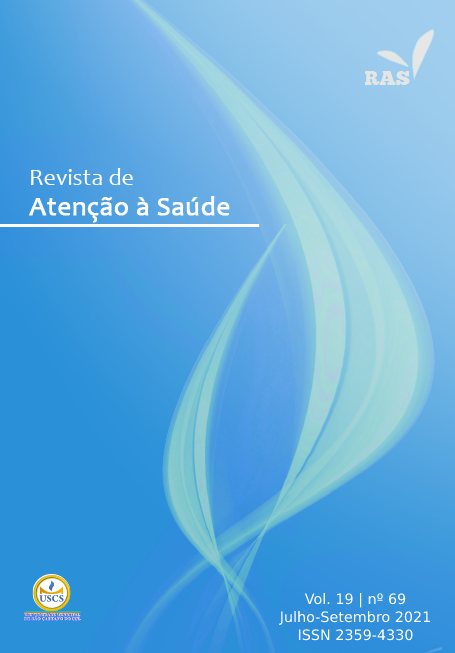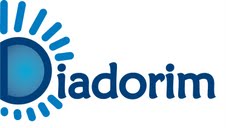Education in health for people with diabetes mellitus in the hospital
DOI:
https://doi.org/10.13037/ras.vol19n69.7488Keywords:
Non-communicable diseases, Adult. Education in health, Qualitative researchAbstract
To describe the nurses' actions in favor of education in health for people hospitalized with diabetes mellitus. MATERIALS AND METHODS: This is a qualitative research study, carried out in a teaching hospital in southern Brazil. The intentional sample consisted of 15 nurses who worked in the sectors of medical clinic, surgical clinic and urgency and emergency networks. The data were produced using semi-structured interviews from September to November 2019 and subsequently managed by means of the Ethnograph v6 program; after that, they were submitted to content analysis. RESULTS: Five categories were identified, namely: Guiding and (re)adapting: avoiding complications; Education for foot and skin care; Guidelines on the use of drugs; Food care; and Education in health with family members. Nurses claim that education in health inside the hospital plays a key role and that their educational process has included some actions that covered both people with diabetes mellitus and their family members. CONCLUSIONS: In the hospital, the nurse can promote actions such as the implementation of groups for people with diabetes, creating an enhanced place in order to share guidelines and life experiences and to discuss the way in which they take care of their health.V
Downloads
References
Whiting DR, Guariguata L, Weil C, Shaw J. IDF diabetes atlas: global estimates of the prevalence of diabetes for 2011 and 2030. Diabetes Res Clin Pract. 2011; 94:311-21.
International Diabetes Federation. Diabetes Atlas de la FID. 8ª edición, 2017.
Sociedade Brasileira de Diabetes. Diretrizes da sociedade brasileira de diabetes 2019-2020. São Paulo: Editora Clannad, 2019.
Brasil. Ministério da Saúde. Datasus. Brasília; 2020.
Kaya Z, Karaca A. Evaluation of Nurses’ Knowledge Levels of Diabetic Foot Care Management. Nursing Research and Practice 2018; 2018:8549567.
Signor F, Leguisamo CP, De Marchi ACB, Bavaresco SS, De Oliveira LZ, Pillatt AP. Conhecimento e educação em saúde de idosos portadores de diabetes mellitus. Fisioter Bras 2016; 17:171-75.
Arruda C, Silva DMGV. A hospitalização como espaço para educação em saúde às pessoas com diabetes mellitus. Rev Fun Care Online 2020; 12:37-45.
Marques MB, Coutinho JFV, Martins MC, Lopes MVO, Maia JC, Silva MJ. Educational intervention to promote self-care in older adults with diabetes mellitus. Rev Esc Enferm USP 2019; 53:e03517.
Brasil. Ministério da Saúde. Secretaria Executiva. Secretaria de Gestão do Trabalho e da Educação na Saúde. Glossário temático: gestão do trabalho e da educação na saúde. 2° ed. Brasília: Ministério da Saúde, 2012.
Pelicioni MCF, Pelicioni AF. Educac?a?o e promoc?a?o da sau?de: uma retrospectiva histo?rica. Mundo Sau?de 2007; 31:320-28.
Souza NPG, De Oliveira GYM, Girão ALA, Souza LM, Maniva SJCF, De Freitas CHA. Adoecimento por hipertensão arterial e Diabetes Mellitus: concepções de um grupo de pacientes hospitalizados. Rev enferm UERJ 2015; 23:52-7.
Figueira AB, Amestoy SC, Cecagno D, Tristão FS, Trindade LL, Correa VA. Visão do enfermeiro frente à prática da educação em saúde no ambiente hospitalar. Cogitare Enferm. 2013; 18:310-16.
Castro-Meza AN, Pérez-Zumanob SE, Salcedo-Álvarezc RA. La enseñanza a pacientes con diabetes: significado para profesionales de enfermeira. Enfermería Universitaria 2017; 14:39-46.
Carvalho SL, Ferreira MA, Medeiros JMP, Queiroga ACF, Moreira TR, Negreiros FDSF. Mapa de conversação: estratégia educativa no cuidado ao idoso com diabetes mellitus. Rev Bras Enferm [Internet] 2018; 71:925-29.
Minayo MCS. Amostragem e saturação em pesquisa qualitativa: consensos e controvérsias. Revista Pesquisa Qualitativa 2017; 5:1-12.
Bardin L. Análise de Conteúdo. São Paulo: Edições 70, 2016.
Brasil. Conselho Nacional de Saúde. Resolução n°466, de 12 de dezembro de 2012. Aprova normas regulamentadoras de pesquisas envolvendo seres humanos. Brasília; 2012.
Brasil. Conselho Federal de Enfermagem. Resolução nº 564/2017. Aprova o novo Código de Ética dos Profissionais de Enfermagem. Brasília; 2017.
Conrad P. The Meaning of Medications: Another Look at Compliance. Social Science and Medicine 1985; 20:29-37.
Rigon AG, Neves ET. Educac?a?o em sau?de e a atuac?a?o de enfermagem no contexto de unidades de internac?a?o hospitalar: o que tem sido ou ha? para ser dito?. Texto Contexto Enferm. 2011; 20:812-17.
Falkenberg MB, Mendes TPL, De Moraes EP, Souza EM. Educação em saúde e educação na saúde: conceitos e implicações para a saúde coletiva. Ciência & Saúde Coletiva 2014; 19:847-52.
Teston EF, Spigolon DN, Maran E, Santos AL, Matsuda LM, Marcon SS. Nurses’ perspective on health education in Diabetes Mellitus Care. Rev Bras Enferm [Internet] 2018; 71:2735-42.
Santos WP. Abordagens metodológicas utilizadas em intervenções educativas voltadas a indivíduos com diabetes mellitus. Revista Enfermería Actual 2020; edición semestral n° 38.
Reis P, Arruda GO, Nass EMA, Ratuchnei ES, Haddad MCFL, Marcon SS. Autocuidado e percepção do tratamento para o diabetes por pessoas em uso de insulina. Revista de Enfermagem da UFSM 2020; 10:1-20.
Ha Dinh TT, Bonner A, Clark R, Ramsbotham J, Hines S. The effectiveness of the teach-back method on adherence and self-management in health education for people with chronic disease: a systematic review. JBI Database of Systematic Reviews and Implementation Reports 2016; 14:210-47.
Maciel MED. Educac?a?o em sau?de: conceitos e propo?sitos. Cogitare enferm. 2009; 14:773-76.
Luz GOA, Alves DDA, Costa HKS, Da Silva Filho JC, Stratmann PF, Souza MAO, Santos ICRV. Associação entre o letramento funcional em saúde e o autocuidado com o diabetes mellitus. Cogitare enferm. [Internet] 2019; 24:e66452.
Amara RT, Barbosa AM, Teixeira CC, Brandão LGVA, Afonso TC, Bezerra ALQ, Tobias GC. Conhecimento dos diabéticos frente à doença e orientações no autocuidado. Rev enferm UFPE on line. 2019; 13:346-52.
Costa SS, Rosales RA, De Ávila JA, Pelzer MT, Lange C. Adesão de idosos com diabetes mellitus à terapêutica: revisão integrativa. Cogitare Enferm 2017; 22: e47720.
Dickinson JK, Guzman SJ, Maryniuk MD, O’Brian CA, Kadohiro JK, Jackson RA, D’Hondt N, Montgomery B, Close KL, Funnell MM. The Use of Language in Diabetes Care and Education. The Diabetes EDUCATOR 2017; 43: 551-64.
Downloads
Published
Issue
Section
License
Copyright (c) 2021 Caroline Rocha Batista Barcellos, Juliana Graciela Vestena Zillmer, Bárbara Resende Ramos, Daniela Blank Barz, Franciele Roberta Cordeiro, Marina Borges Luiz

This work is licensed under a Creative Commons Attribution-NonCommercial-ShareAlike 4.0 International License.
Policy Proposal for Journals offering Free Delayed Access
Authors who publish in this magazine agree to the following terms:
- Authors maintain the copyright and grant the journal the right to the first publication, with the work simultaneously licensed under a Creative Commons Attribution License after publication, allowing the sharing of the work with recognition of the authorship of the work and initial publication in this journal.
- Authors are authorized to assume additional contracts separately, for non-exclusive distribution of the version of the work published in this magazine (eg, publishing in institutional repository or as a book chapter), with the acknowledgment of the authorship and initial publication in this journal.
- Authors are allowed and encouraged to publish and distribute their work online (eg in institutional repositories or on their personal page) at any point before or during the editorial process, as this can generate productive changes, as well as increase impact and citation of the published work (See The Effect of Open Access).









